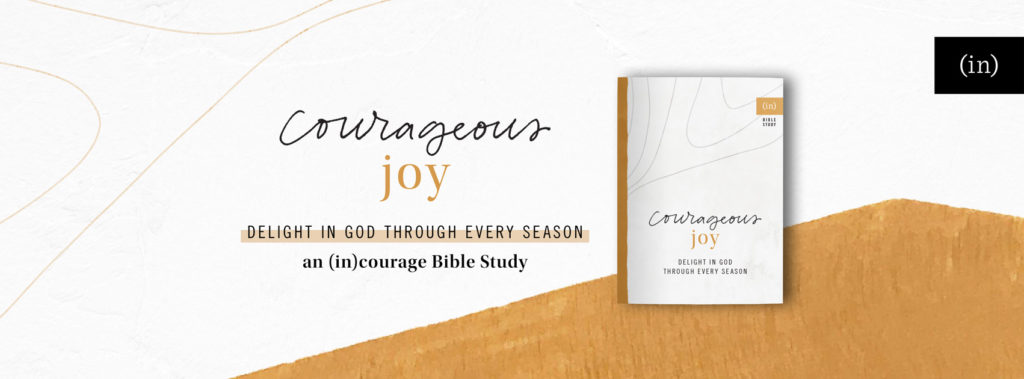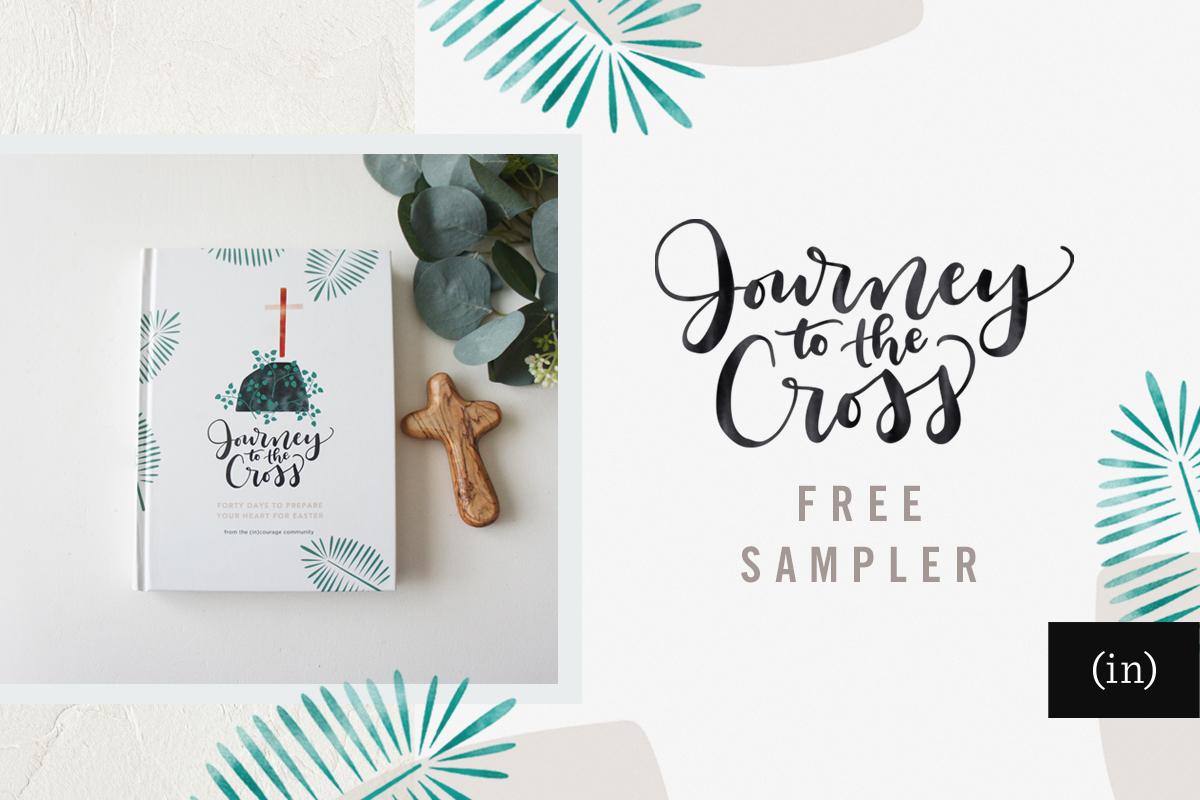This year. It’s been a journey — and not like a pretty, ride-off-into-the-sunset kind but more the kind that chewed us up and spit us out. We are all in desperate need of joy — one that’s deeper than a good latte, a beautiful sunset, or even a birthday celebration. We’re in need of the kind of joy that fills our hearts even when it doesn’t make sense to feel joyful. The kind of joy that radiates. The kind that comes from the Lord and is so much deeper, so much more life-giving than the joy of this world.
We need some soul-deep, unshakable, unwavering joy, and we’re pretty sure we’re not alone.
We’re ready to turn away from the world’s counterfeit version of temporary satisfaction and embrace the deep, authentic joy God is offering. So we are thrilled — JOYFUL, if you will — to introduce the second of four Bible studies coming from (in)courage this year . . . Courageous Joy: Delight in God Through Every Season, written by Mary Carver and featuring stories from the (in)courage community!
Isn’t this the perfect topic to follow the year we’ve had??
Courageous joy is both breathtakingly simple and beautifully complex, and it’s what we investigate in this new Bible Study. In Courageous Joy, we’ll dive into the Word of God to learn what He says about joy. We’ll learn to find joy in every circumstance we face and to share it with everyone we encounter. We’ll begin to understand how a person can truly count it all joy, even when the “all” we’ve been given is not the “all” we were hoping for or expecting.
You’re invited to dig deep with us and make 2021 the year we courageously lean into joy!
The Courageous Joy Bible Study is available wherever Bibles are sold, including:
Don’t want to wait to get started? Sign up here and we’ll send you a FREE week from each of the Courageous Bible Studies, including Courageous Joy!




 Tyndale’s
Tyndale’s